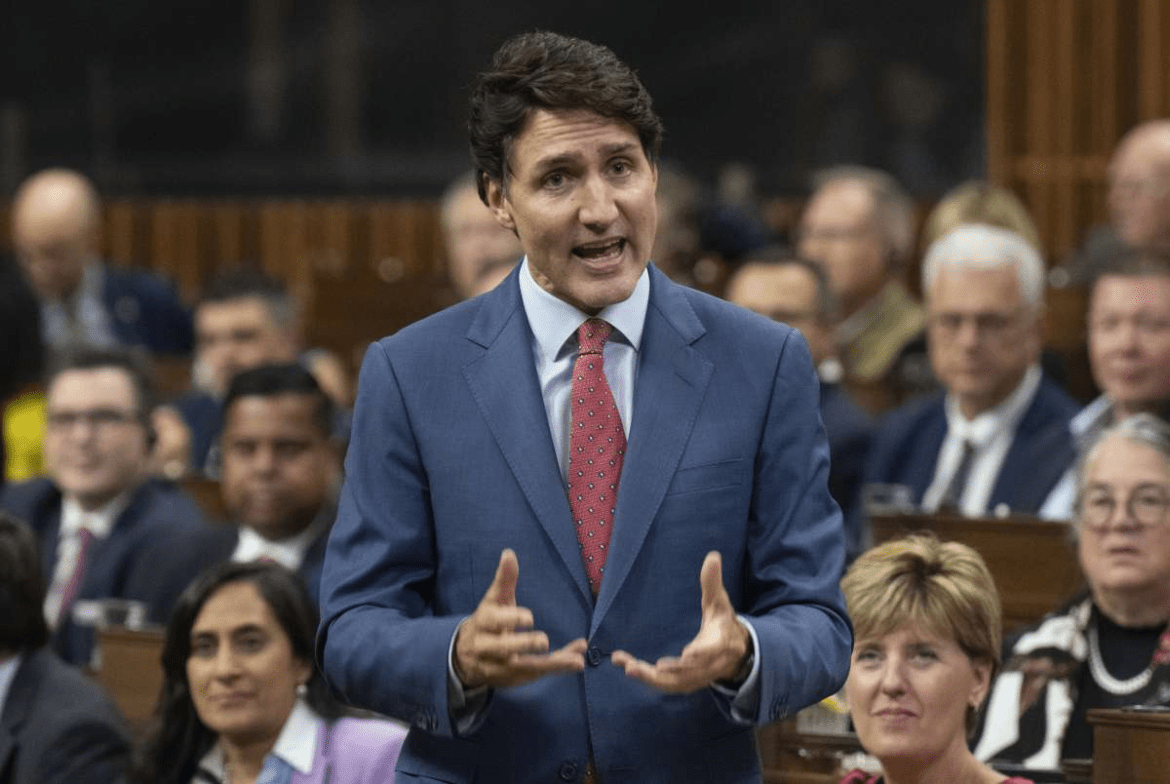AI Generated Summary
- By failing to address the real threats on Canadian soil, the Trudeau government and its media allies risk alienating a significant portion of the Indian diaspora, a community that has contributed immensely to Canada’s cultural and economic fabric.
- Instead of relying on state-funded media to carry the water for unverified accusations, Trudeau’s government should focus on fostering dialogue and ensuring that Canada remains a safe, inclusive space for all its citizens—regardless of their background.
- There were leaks to outlets like The Washington Post and The Globe and Mail alleging Indian involvement in the killing of Hardeep Singh Nijjar, a Canadian citizen and Khalistani separatist.
In an era where global diplomacy demands restraint and precision, Canada’s recent approach under Prime Minister Justin Trudeau raises critical questions. Particularly troubling is the increasing alignment of state-affiliated media, like the CBC, with the government’s narrative, creating a fog of disinformation rather than clarity.
The CBC’s recent story is emblematic of this trend. The piece not only lacks substantive evidence but also attempts to redirect attention from the underlying issues—Canada’s lax handling of Khalistani extremism and the growing concern over its support for separatist ideologies.
The CBC’s report suggests that a coordinated campaign of “bots” and Indian media outlets is spreading fake news to stoke tensions in Canada. This conveniently shifts the spotlight away from the aggressive Khalistani activities that have been openly carried out on Canadian soil, including attacks on Hindu temples and threats against members of the Indian diaspora.
The @CBCNews reporting their trash rag news which continues to spew its vomit inducing vitriol against the Hindu community. Calling the violent Khalistani extremists who attacked Hindu observers celebrating Diwali “demonstrators” and the Hindu response the next day “counter… pic.twitter.com/d1xOJhFcII
— Tafsik Organization (@tafsikorg) December 19, 2024
This narrative also obfuscates the fact that Canada has become a breeding ground for separatist groups like Khalistanis, whose activities frequently cross the line from advocacy to intimidation and violence. By framing the conversation around alleged “disinformation” from Indian sources, the CBC and, by extension, Trudeau’s government attempt to shield themselves from scrutiny over their failure to address domestic extremism.
Trudeau’s approach to India has been characterized by inconsistency. First, there were leaks to outlets like The Washington Post and The Globe and Mail alleging Indian involvement in the killing of Hardeep Singh Nijjar, a Canadian citizen and Khalistani separatist. Yet, when pressed for evidence, Trudeau admitted that Canada had no “credible evidence” to support these claims.
Further complicating matters, Canadian Prime Minister Justin Trudeau publicly criticized his own intelligence officials, referring to them as “criminals” for leaking information to the media. He stated, “We have seen, unfortunately, that criminals leaking top-secret information to the media have consistently gotten those stories wrong.” This statement came after Canada denied having evidence linking top Indian leaders to criminal activities, contradicting earlier media reports.
The CBC’s role in amplifying this narrative cannot be ignored. As a state-funded broadcaster, it bears the responsibility of upholding journalistic integrity. Yet, the network’s recent reportage has leaned heavily on speculative claims, unverified assertions, and a noticeable lack of nuance. By portraying India as a propagator of disinformation, the CBC not only undermines its credibility but also exacerbates tensions between Canada and its second-largest trading partner.
The CBC story conveniently sidesteps the core issue: the unchecked rise of Khalistani extremism in Canada. Hindu temples have been vandalized, and the Indian community has faced targeted harassment, yet these incidents receive scant attention. Instead, the narrative focuses on alleged misinformation campaigns, a diversion that shifts blame away from the Canadian government’s inaction.
How much did @CBCNews spent on this dubious piece?
— Guneet Singh (@i_guneet) December 18, 2024
How much of our tax dollars were spent?
How much? https://t.co/A6C5SaiDeb
This selective framing is not without consequence. By failing to address the real threats on Canadian soil, the Trudeau government and its media allies risk alienating a significant portion of the Indian diaspora, a community that has contributed immensely to Canada’s cultural and economic fabric.
Diplomatic tensions between Canada and India are at a precarious juncture, and Trudeau’s reliance on media narratives to advance unsubstantiated claims is only deepening the divide. Responsible leadership requires a commitment to evidence-based diplomacy and an honest reckoning with domestic challenges, including extremism.
Instead of relying on state-funded media to carry the water for unverified accusations, Trudeau’s government should focus on fostering dialogue and ensuring that Canada remains a safe, inclusive space for all its citizens—regardless of their background.
The CBC, for its part, must reflect on its role as a public broadcaster. Journalism is not a tool to amplify government propaganda; it is a means to hold power accountable. It is time for the network to reclaim its integrity and prioritize truth over political expediency.
If Canada hopes to maintain its reputation on the global stage, it must address its internal issues with the seriousness they deserve, rather than scapegoating foreign nations and media. Trudeau and the CBC would do well to remember that.
The opinions expressed in this article are those of the author. They do not purport to reflect the opinions or views of Khalsa Vox or its members.




